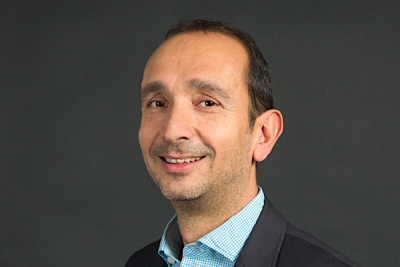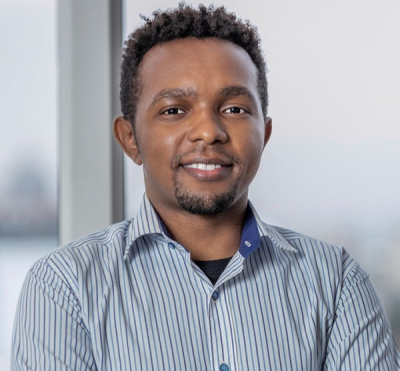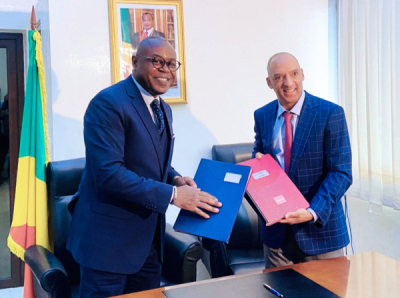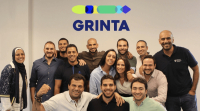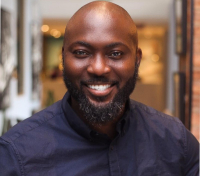The solution helps Mauritians in need get loans and individuals help their compatriots while making small profits in the process.
FinClub is a fintech solution developed by a Mauritian eponymous start-up, launched in 2018. It allows users to borrwwo money directly from other users with no middleman in the process.
“FinClub acts as a facilitator to connect Lenders directly with Borrowers. Using a seamless and fully automated online platform, with minimal overheads, we pass on the savings to Borrowers who get competitive loans and to Lenders who get higher interest rates,” the startup explains on its website.
To access its services, users can register their accounts, either as lenders or borrowers, via the solution’s mobile app -accessible for Android and iOS devices-. Then they need to upload the required documents.
Once fully verified, borrowers can start borrowing funds for emergency purposes and lenders can put their money to work as FinClub connects to “credit-worthy” borrowers.
Currently, the solution’s Android app has been downloaded more than a thousand times on PlayStore. In 2022, FinClub was selected along with seven other Mauritian startups to take part in Viva Technology, one of the European most important tech events that help gain national and international exposure.
Adoni Conrad Quenum
The trained accountant chose to venture into the agritech sector by developing an e-commerce platform that sells fresh fruits and vegetables. The venture has already earned him local and international recognition.
Elia Timotheo (photo) is a Certified Professional Accountant who graduated from the Tanzanian National Board of Accountants and Auditors (NBAA) in 2018. He is also the founder and CEO of East Africa (EA) Fruits Co. a food distribution company that aims mission to improve the lives of tens of thousands of Tanzanian farmers and small businesses.
EA Fruits, which was launched in 2013, wants to reduce post-harvest losses by collecting, processing, storing -thanks to cold chain technologies when needed- and distributing agricultural products. On its online platform, the company markets all types of food, from cereals to fresh fruits and vegetables...
“Roughly half of what farmers produce never reaches the market, and this loss is spread out across the farm-to-market value chain. First, farmers may lack the knowledge and training to properly care for their farms, produce and harvests, resulting in 20 to 25 percent of losses. Second, farmers sell produce to brokers who use inappropriate vehicles to transport perishable produce, leading to another 10 percent of losses. Lastly, in the market, it’s very difficult to sell all the produce in one day or even two, yet there are no storage facilities for a truckload of produce that just spent days travelling hundreds of miles in inadequate conditions. All this results in severe losses for farmers who fail to reap the fruits of their hard work,” Elias said in 2020 while explaining the rationale behind the creation of EA Fruits.
“To change this, East Africa Fruits establishes a relationship with smallholder farmers and provides training, food processing, storage and market access using cold-storage transportation. This process extends the shelf-life of produce and reduces post-harvest losses,” he added.
Since 2008, the trained accountant is a member of the advisory board of Changbay Sonic Hotels in Tanzania. In 2013, he co-founded the processing and distribution company AMEJ Investment Limited. Three years earlier, he had co-founded 7 Stars Computers Limited, an “affordable” computer marketing firm when he “realized that computers and laptops had vital importance to college students and they would not afford to buy by then.”
The serial entrepreneur kicked off his professional career, in 2010, by joining the foreign exchange bureau Kibo Palace Group as an exchange manager, sales assistant, and customer relations officier. In December 2011, he worked for the Ministry of Agriculture, Food Security, and Cooperatives as a field representative. Some 12 months later, he joined the Ministry of Finance and Economic Affairs as a junior accountant.
Thanks to EA Fruits, he has received several awards and recognitions, including the African Entrepreneurship and the SEED Africa Awards in 2015. This year he was also one of the 50 finalists of Africa’s Business Heroes.
Melchior Koba
On the sidelines of the 2022 Climate Change Conference (Cop27), Jean Michel Canto, Orange Middle East & Africa's Director of Sustainable Energy & Partnerships, gave an exclusive interview to We Are Tech. During the interview, he highlighted the French group’s climate commitment in Africa.
We Are Tech: Why is Orange taking part in the Cop27?
Jean Michel Canto: Several years ago, Orange made clear environmental and climate commitments. For a long time, we are committed to these issues, which are very important to us. We have already taken several actions in our markets to reduce our environmental impact. Through the Cop27, we want to support governments in reaching their ecological and energy transition goals. We want to work with governments to develop renewable energy, to develop ecosystems, and circular economies. At the Cop27, Orange Group, through the Director of the Environment, is reiterating its environmental commitments and its availability to support governments in their projects to their reduce carbon footprint. We are ready to work daily with countries to collectively achieve these commitments.
WAT: You keep mentioning support to countries. What does such support concretely entail?
JMC: One of the major challenges in achieving our environmental objectives and for countries to achieve theirs is access to renewable energy. The second axis is the whole ecosystem of the circular economy.
Presently, it's true that regulations don't allow us to do exactly what we would like to do, notably build and develop solar farms and directly use this renewable energy. But by working hand in hand with countries, we are confident that we will be able to change these regulations and attract the necessary investments in African countries to multiply the deployment of solar and wind farms wherever possible.
The circular economy is the recycling of telephones and telecom equipment that we use every day. For renewable energy, as an operator and private industry, we can attract the capital needed to develop renewable energy in Africa. In Africa, no factories are specializing in refurbishing telecom equipment and phones for new use. Our ambition is to work with governments so that such factories can be set up in Africa.
For the time being, telecom equipment and phones are sent to Asia and Europe to be refurbished. We are sure that the development of this type of activity on African soil will create jobs but will also contribute to the development of the circular economy and reduce raw material extraction, which is harmful to our planet.
WAT: Phones become electronic waste when they are no longer useful. This is obvious but how does Orange’s infrastructure harm the environment?
JMC: Like every activity, industry, and company, we need electricity. So do the infrastructure through which we provide services to our subscribers. Using non-renewable energies such as diesel to guarantee the continuity of our services in certain areas with poor access to electricity accentuates the impact of our infrastructure on the environment. Put simply, it is through carbon emission. Renewable energy greatly reduces this carbon footprint. We are already working with our infrastructure and equipment suppliers to ensure that they have a strong commitment to limiting their impact on the environment right from the design stage.
Objectively, in Africa, the major factor contributing to our carbon emissions is the use of energy to power all our telecom towers, data centers, etc. This is why we are insisting on the use of renewable energy sources. That's why we put a lot of emphasis on working with countries or governments to develop renewable energy. A few years ago, we were using so many generators to power our telecom towers. But we are gradually deploying solar panels, which generate clean energy, to replace them.
Digital technologies are great tools. They enable videoconference and teleworking but telecom infrastructures are mostly needed for all that. With eco-responsible telecom infrastructures and equipment, we can greatly limit the impact we could have on the environment and the climate.
WAT: Orange has developed a program called "Net Zero Carbon 2040". What is it about?
JMC: Net Zero Carbon 2040 is Orange's strong commitment to the climate. It means that we are committed to strongly reducing our carbon emissions through the use of renewable energy. We are aware that there will still be an incompressible minor part of our carbon emissions. Not every activity can be fully clean. To compensate for these residual carbon emissions, we must commit ourselves to solutions that are called carbon sinks, i.e. solutions that will capture the CO2 that we will emit.
We have already launched major carbon sink projects in countries like Senegal, Cameroon, and Madagascar. We have made commitments to plant trees and protect the mangrove ecosystem. We have signed a partnership with experts in the field. Orange is specialized in the telecommunication industry. So, we rely on environmental experts for climate-related issues, including the protection and development of the mangrove, which is a great carbon sequester. We are committed to taking such actions in Africa and we believe that thanks to them, we can meet our net zero carbon goal by 2040.
We have a milestone for 2025. This milestone is that by that time, more than half of the energy used by the group must be generated by renewable sources. This is a big challenge. That's why we continue to power our sites with solar panels and do the same for our data centers, which are energy-intensive.
In Africa, we have more than 6,000 telecom sites equipped with solar panels. We will continue and accelerate this energy transition to the rest of our equipment. In countries such as Guinea, Sierra Leone, Madagascar, and Jordan, more than half of the energy consumed by the network comes from renewable energy sources that we produce ourselves. If possible, we would like to develop solar and wind farms, to inject this clean electricity into the electricity grid of the countries in which we operate and use this clean electricity on all our telecom towers. In addition to that, we have commitments to reduce our carbon footprint on what we call SCOPE 1 and 2, fuel and electricity namely. Orange as a group plans to reduce the use of such energy sources by 30%.
WAT: Orange works with telecom tower managers. How does the group reconcile this operational cost management with its environmental commitments?
JMC: We work with tower managers (towercos) in five countries. In the twelve other markets, we operate our own towers. When we operate our own towers, we call on experts to help us with this transition. We call these experts ESCOs. These energy experts from the telecom industry help us to modernize our energy production chains in our telecom towers, adding as much solar energy as possible, and adopting the right size for our current and future needs. In Africa, all three tower managers we work with have renewable energy commitments for 2030, 2040, and 2050.
WAT: In addition to reducing the environmental impact of its business activities and carrying out direct actions in favor of the climate, such as carbon sinks, how does Orange's investment in the environment integrate the well-being of the African population?
JMC: The impact on society is as important as the impact on the environment. Through all the direct climate activities, such as the protection of the mangrove, which meets our environmental objective, Orange also aims to develop the entire ecosystem around it to benefit populations. Training will therefore be organized and new jobs created as we know that the mangrove produces wood and by-products can therefore be produced and sold. We have included support in this very important project. We also are deploying Orange Digital Centers (ODC) everywhere in Africa. Through those infrastructures, we will raise awareness of environmental issues by organizing activities like coding competitions focusing on the environment for young people. Africans are awaiting those environmental projects because they will be the first parties affected by climate change. With the drought in some regions, fishing villages disappearing in Senegal, etc, those populations are beginning to feel the impacts of climate change.
WAT: Can we consider Orange Energie as one of the components of Orange's environmental action?
JMC: Yes, it is. Orange Energie allows access to solar kits, which are symbolic since by definition solar kits provide renewable energy for schools, professionals, etc. It is not limited to solar kit distribution, however. It also projects to build mini-grids, namely small solar farms that can supply one or two villages with no access to energy.
Once again, these are, by definition, renewable energies since they are solar fields that will be deployed. These are two examples that bring essential services to the populations, in addition to responding to strong environmental issues.
The environmental issue is a broad subject and Orange is fully committed because it is important for us and the development of the African continent.
Interview by Muriel Edjo
The digital solution aims to help people stay fit.
Eat & Fit is a digital platform developed by a Tunisian eponymous startup to help its users have a good nutritional follow-up. It allows the said users to buy diet foods and have them delivered.
The balanced and varied meals it offers help users maintain the nutritional proportions required for specific purposes, be it weight gain, weight loss, or muscle toning. Every week, the platform customizes the meals and adapts them to help its users quickly reach their goals.
To access its services, users must register, subscribe to one of its plans and then meet a nutritionist for a complete assessment. The result of that assessment informs the instruction given to chefs for the meals delivered to every user. Users also receive nutritional and sports support with regular follow-up.
For a healthier environment, Eat & Fit seeks the best ways to reduce its ecological footprint. It also adopts a "zero waste" policy by calculating the exact amount of ingredients needed for every meal. Currently, it is only operational in Tunisia but, it plans to expand to other countries in the region.
Adoni Conrad Quenum
The serial entrepreneur has already helped create five startups in Africa. His latest venture embodies his desire to build a new credit and trade infrastructure in Africa and emerging markets.
Kageni Wilson (photo) is a Kenyan entrepreneur and the co-founder/CEO of fintech startup Finplus Group. With the latter, he aims to help close the “massive $5-trillion credit deficit faced by SMEs in developing countries each year."
To achieve its goal, the startup developed Finplus, a digital finance and e-commerce software that provides three main services. First, it enables banks and micro-lenders to lend on a large scale. It also helps consumer goods companies digitize end-to-end sales by effectively transforming their supply chain into a demand chain. Finally, it unlocks access to an instant credit line for tens of millions of SMEs and individuals in emerging markets. It has already processed more than US$1 billion in transaction value in the Kenyan, Ugandan, Tanzanian, eSwatini, and South African markets. It has also enabled access to credit for more than 3 million SMEs and individuals.
"Today, our software helps an individual or small business access credit or transact with financial institutions and suppliers every 10 seconds. We have come a long way since processing our first transaction in April 2017 and it’s all thanks to our customers trusting us to manage their relationship with millions of end customers and over a billion dollars of value. It’s an enormous responsibility and one that gives us pride as an African company building in Africa for Africans," Wilson said in November 2022.
Since 2016, the latter is a mentor in KCB Bank Group's KCB 2jiajiri program. He is also an iHub Nairobi Outreach Ambassador and a member of the non-profit crowdfunding platform 1%Club’s team.
The serial entrepreneur also co-founded the education platform Usomi, in 2012. About one year earlier, he had co-founded cloud computing service Ionacloud after co-creating digital media production company Planetary Pictures in 2011.
From 2014 to 2017, he was the founding partner of AllenHark Group, "a collective of financial technology companies building plug and play software solutions for Financial Services delivery in East Africa."
Melchior Koba
The Republic of Congo is gradually making its way toward the complete digitization of its public services. To accelerate the process and reach its goals by 2025, the government is multiplying partnerships with international companies specializing in digital issues.
Canadian company Casimir Network signed Tuesday (Nov.22) a memorandum of understanding to support Congo in its digital transformation.
The MoU was signed by the Congolese Minister of Posts, Telecommunications, and Digital Economy, Léon Juste Ibombo (photo, left), and Jean Michel Casimir (photo, right), CEO of Casimir Network. It provides, among other things, the training of local talent on innovative technologies, the construction and operation of a data center that will host servers for blockchain services, the transfer of knowledge concerning the operation of the data center, and the development of cybersecurity and personal data protection programs. It also plans for support and research, and the development of the African Center for Research in Artificial Intelligence (Caria).
The memorandum aims to “help our partners create and operate the data center here in our country. Indeed, the country of a data center will allow our partners to support and assist us in the operationalization of Caria,” Minister Leon Juste Ibombo said.
Earlier this year, Congo launched an African Center for Research in Artificial Intelligence (Caria) which serves as a framework for in-depth research for students and other researchers on the continent. It is the result of cooperation between the Congolese government and the United Nations Economic Commission for Africa (ECA). Caria supports other major digital projects underway in the framework of Congo’s digital development plan, "Congo Digital 2025.”
The agreement between Congo and Casimir Network is expected to take effect in early 2023. This week, a site visit will be organized to verify the location of the future data center. "We hope everything will be finalized and we will launch operations by September 2023," said Jean Michel Casimir.
He added that the data center will be based on blockchain technologies since they are going for an ecological solution. “Congo offers green energy generated by a hydroelectric dam. We were looking for stability and we found it here,” he indicated.
Samira Njoya
According to the WHO, counterfeit medicines cause nearly 100,000 deaths in Africa each year. Grinta wants to remove this scourge by offering medicine traceability and authentication solution.
Egyptian digital pharmacy platform Grinta, announced Monday (Nov. 21), a US$8 million raise to develop its tech platform and accelerate its growth in the local market. The funds, raised during a seed round, were secured from Raed Ventures (Saudi Arabia) and NClude, an Egyptian FinTech fund managed by Global Ventures (Dubai).
"As we plan to expand our footprint in the main pharma hubs on the continent, we will also enable Egyptian and regional pharma manufacturers to further penetrate the US$50 billion African market," said Grinta co-founder and CEO Mohamed Azab.
According to the company's statement, Egypt’s US$6.3 billion pharmaceutical market (Softgroup) is the largest and fastest-growing in Africa. It has three major distributors and more than 3,000 wholesalers targeting 60,000 fragmented retail pharmacies. Nevertheless, the market is also affected by the shortage of pharmaceutical products that usually hit African countries (nearly half of Africa's population (1.1 billion people) lacks regular access to the most essential medicines).
Since its inception in 2021, Grinta has been working to reduce the drug shortage in Egypt by modernizing the pharmaceutical supply chain and empowering independent pharmacies. Its end-to-end platform provides access to the full range of traceable pharmaceutical and medical products from multiple suppliers, in addition to order fulfillment, demand planning, and inventory financing.
Thanks to the funds secured, it wants to scale its full-stack technology platform, expand its team and accelerate its growth in the Egyptian market. Within a year and a half of operation, the company has aggressively expanded across seven governorates in Egypt, with over 14,000 pharmacies registered on its platform, more than 100,000 orders delivered, and more than 14,000 stock management units.
Samira Njoya
The real estate and construction expert has founded two companies, in Nigeria, to contribute to the development of the local construction sector. His ventures have earned him the trust of several investors.
John Oamen (photo) is a Nigerian entrepreneur and project manager. He is one of the co-founders and CEO of CutStruct Technology Ltd, a proptech startup that wants to unlock the “next one million homes in Africa by improving the construction business environment.”
His proptech startup uses technology to change “how stakeholders buy, hire for, and manage their projects.” It developed LiveVend, a construction procurement platform that allows buyers, real estate developers, and contractors, to hire qualified suppliers. LiveVend also offers other much-needed services such as transportation, in-transit cargo insurance, and trade credit.
"We connect construction vendors to buyers. All the complex work takes place in the background. The vendor vetting, sorting out the appropriate logistics, ensuring the goods are insured, guaranteeing fulfillment and securing financing – these are the complex things we do in the background, while our users engage with a simple platform," Oamen explained in November 2022, while presenting LiveVend after a US$600,000 pre-seed round.
In 2010, John Oamen, an embodiment of the phrase "serial entrepreneur", founded Faultless Finish, a finishing, remodeling, and interior designing company. Since 2021, he is the executive director of PropTech Nigeria, a community of Proptech enthusiasts.
The real estate and construction expert entered the professional world, in 2005, as a sales executive for Auto Merchants, a construction materials dealer. In 2007, he joined the African infrastructure development company Greenfield Assets Ltd. as Chief Real Estate Broker. He worked there until the creation of Faultless Finish.
Melchior Koba
Although agriculture is a significant contributor to the economies of most African countries, the continent has no or just a few agricultural banks. This significantly impedes the development of the sector but, thanks to new technologies, entrepreneurs are stepping in to fill the void left by authorities.
Emata is a digital solution developed by a Ugandan eponymous startup. It allows farmers access to loans to invest in their farms. It also gives them the possibility to create an online business to sell their products.
"We invest in farmers and dare them to dream big. […] We install Emata on your cooperative or aggregator's computer and phone. Our local impact team trains your staff on how to use it. […]. The cooperative or aggregator uses Emata to register farmer deliveries, update prices, create payment schedules, and share daily SMS updates with farmers," the Emata platform indicates
The platform enables the collection of crucial data on new online business operations. Such data informs new decisions aimed at improving operating performance. It should also be noted that the startup uses credit scoring algorithms to identify good farmers and offer loans they can afford. According to Emata, these are "instant and affordable loans," that allows beneficiaries “to invest in the productivity of their farms.”
To date, the startup has supported 8,091 farmers, issuing 1,429 loans. In 2021, it was selected, along with 11 other startups, to participate in the third edition of CATAPULT: Inclusion Africa. This allowed Emata to gain visibility and strengthen its presence in the Ugandan market.
Adoni Conrad Quenum
Like almost every country, DRC is digitalizing every sector, including its justice system. The identification system to be built will greatly facilitate law enforcement agencies’ works in the countries.
The Democratic Republic of Congo (DRC) recently awarded a US$70 million contract to Israeli company Pangea to develop and operate an automated, centralized biometric criminal identification system (ABIS) that will identify individuals based on their biometric traits and build criminal records.
The database, which will include the biometric data of identified law offenders, will be accessible by 150 police stations nationwide. It will also have fingerprint and handprint-based crime investigation capabilities.
“Digital government services are essential to the countries’ long-term growth, especially those with tremendous economic potential like Congo.[…] Today, we’re able to advance with such a strategic project in a remarkably short period and achieve major transformation with solutions that have proven themselves around the world,” explains Uzy Rozenthal, Pangea’s executive vice president.
The project will be carried out under a public-private partnership model. It is the result of a decision by the government of Congo to promote the digitization of government services in the country. It adds to the other projects underway in the country in the framework of the National Digital Plan - Horizon 2025.
The partner selected for the project -Pangea-has been providing digital transformation solutions to businesses since its inception in 2018. It is also experienced in the implementation of biometric and IT systems for government agencies in several countries around the world.
"Pangea continues to develop capabilities and innovations in our areas of expertise, including new products for eKYC and Smart Border Control. These capabilities will become unique products in the next few months and generate significant revenue in the next few years," said Rafi Kaminer (photo), CEO of Pangea.
Samira Njoya
More...
Over the past three years, she has provided quality fintech, edtech, and enterprise solutions in the Cameroonian market. Her startup has developed a payment solution that has become a reference means for tuition payment in secondary schools in Cameroon.
Ako Joelle (photo) is a Cameroonian computer scientist and entrepreneur. In 2018, the same year she graduated from the University of Buea with a Bachelor of Computer Engineering, she co-founded Innovative Clan (I-Clan), a Douala-based startup.
The startup, whose co-founders are all computer science graduates, commits to developing software that solves major social issues. With her team, Joelle -who heads I-Clan as the CEO- developed a payment platform that allows schools to collect tuition via local mobile payment methods while ensuring financial transparency and also tracking the funds collected. The solution can be used by parents with or without an internet connection, thanks to the USSD technology. Currently, it is the major platform used by most Cameroonian secondary schools to collect their tuition fees. The country’s examination boards also adopted it as the official means for exam fee payment.
Before embarking on the I-Clan adventure, Ako Joelle worked, as a front-end developer, for the job search engine Njorku Ltd. This year, she was selected among the female founders that will take part in the VC4A Venture Showcase 2022. In 2021, on behalf of I-Clan, she won the Hackathon PAK 2021 organized by the Port Authority of Kribi, Cameroon. Two years earlier, in Kenya, she was one of the finalists of the Daikin - Samurai Incubate Ideathon Airtech Bootcamp Africa. She was selected for the launch of the Youth Conneckt Africa initiative in Rwanda and invited to take part in the Google Sub-Saharan Africa Community Summit in Accra, Ghana.
Melchior Koba
Côte d’Ivoire currently has an important shortage of physicians, with 1.4 doctors for every 10,000 individuals. E-health solutions are therefore important tools that can help bridge the gap. In that context, Skanmed wants to help by leveraging new technologies.
Skanmed is an e-health solution developed by Ivorian start-up Skan Technologies, launched in 2011. It allows users to remotely consult doctors, notably general physicians, pediatricians, and cardiologists.
Once registered on the e-health platform, users can search for doctors by specialty or by name. They can click on each medical practitioner suggested to check their information, register on their waiting list, or request an urgent video consultation.
In addition to the online consultations, the healthtech solution also offers home service. It has a team of doctors and nurses ready to provide home care 24 hours a day.
In 2021, Skanmed was the winner of the CGECI’s Grand Prix Business Plan Competition. The healthtech also won the first innovation prize awarded by the Ivorian Ministry of Health the same year. Currently, it plans to conquer the whole country before expanding outside. However, its debut was shaky as Skan founder Anicet Amani explains.
"The main challenge we faced was the lack of trust. During the prospecting phase, after the first version of the app, hospitals and physicians were not buying into our idea,” he said. The skepticism, however, disappeared after the startup signed an agreement with the Ministry of Health.
Adoni Conrad Quenum
In Africa, most countries are betting on digital technologies to boost their socio-economic development. In that context, in its Agenda 2063, the African Union has outlined a set of key programs and initiatives to accelerate economic development on the continent.
Last Thursday, the African Union Commission (AUC) and the African Development Bank (AfDB) signed a grant agreement for the implementation of the first phase of "Upstream", a project aimed at developing the African digital market.
The US$9.73 million grant from AfDB aims to support AUC in the implementation of digital projects that are expected to develop a single continental digital market. It also aims to support the implementation of the African Continental Free Trade Area and the Digital Transformation Strategy for Africa.
"The Covid-19 pandemic underscored the importance of digital technologies and the digital economy as a whole, and in that regard, Africa should think big when it comes to digital development, digital economy, and the grand opportunities for integration and economic growth," said Albert M. Muchanga (photo, right), AUC commissioner for economic development, trade, tourism, industry, and minerals.
Upstream is designed to address gaps identified in the African digital economy during the Covid-19 pandemic. The first phase, which will run from 2023 to 2026, has three main components namely digital enablers, digital trade, and e-commerce adoption as well as supporting actions. It will help strengthen the frameworks (strategic, policy, regulatory, and conceptual) and cross-cutting dimensions (gender, climate change, and resilience) that are essential for the establishment of a single continental digital market by 2030.
Ultimately, the project will contribute to the implementation of digital enablers (universal access to broadband infrastructure, sovereign African cloud, African digital marketplace, etc.), e-business, and digital promotion programs for medium, small and micro enterprises, and start-ups. It will also help create an ecosystem facilitating digital trust, skill development, and networking with African experts.
According to Abul B. Kamara (photo, left), the AfDB's deputy director general for the East African region, the project will also create employment opportunities for millions of young Africans, which is critical to the continent's stability and prosperity. It will also ensure the digital transformation of economies and provide new opportunities to increase intra-African trade and stimulate economic growth.
Samira Njoya
The entrepreneur, with over 10 years of experience in the financial service sector, aspires to make a greater impact in her country and Africa. As part of this ambition, Chilufya Mutale (pictured) has co-created a startup and has received multiple awards within and beyond borders.
PremierCredit was launched in 2019. It offers an online microcredit and investment platform, operating in Zambia and Zimbabwe, that allows businesses and individuals to manage their finances more effectively by helping them save, borrow and invest easily to achieve their financial goals. The startup provides affordable credit to borrowers with flexible terms that contribute to financial inclusion and passive income for investors.
“We are building a Challenger bank for Africa that provides embedded finance that is inclusive and introduces previously disadvantaged income groups into formal financial services, thereby contributing positively to financial inclusion. PremierCredit contributes to economic growth through supporting SMEs, which form the backbone of economies in emerging markets, with capacity building through financial literacy as well as providing working capital solutions and investment services,” the co-founder and CEO said.
The certified expert in SME finance and risk management from the Frankfurt School of Finance & Management also holds a post-graduate degree in Project Management from Cavendish University in Zambia (2011). She also graduated from the University of Zambia with a Bachelor of Science in Natural Resource Management. The idea of founding PremierCredit was born out of her desire to better serve her clients by providing solutions that better meet their needs while she was still the CEO of ExpressCredit Zambia, a registered and licensed microfinance institution.
The professional life of Chilufya Mutale started in 2012 at FINCA, where she was the head of the local branch. She then went to ExpressCredit, and later became the Director and Consultant for Financial Services at BlueOrange in South Africa. She was one of 14 entrepreneurs selected in September for the VC4A Venture Showcase Africa 2022. She was connected with top venture capitalists as mentors and presented a pitch for her startup at the 9th Africa Early Stage Investor Summit held November 2-4. She is also one of the EY Entrepreneurial Winning Women 2022.
Chilufya Mutale is among the top 100 Zambian women who are taking the lead and inspiring transformation in 2022. She has been shortlisted for the Woman Innovator of the Year award at the Africa Tech Festival Awards 2022.




